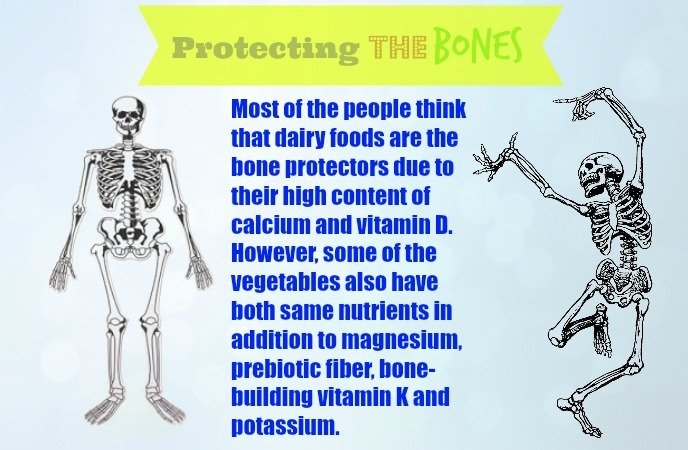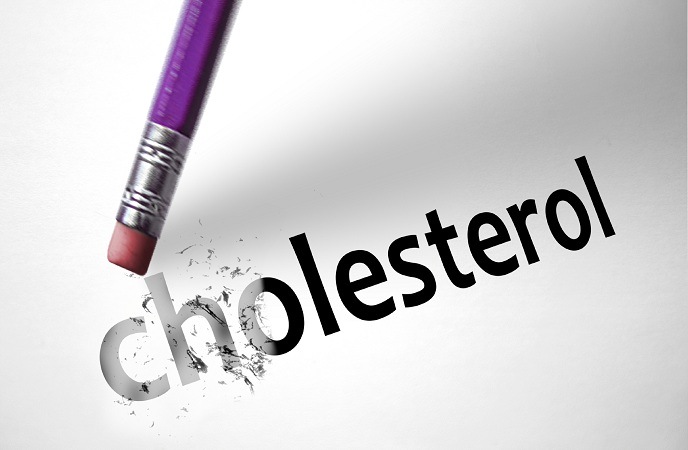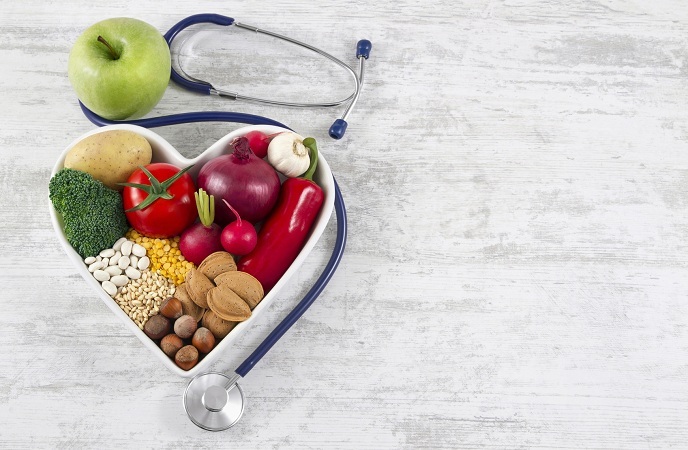The health benefits of vegetables often show in long run by keeping the internal systems in the body in perfect conditions and improving your overall health. The consumption of vegetables makes sure your excretory, digestive, skeletal system and blood pressure levels healthy and stable. With a diet rich in vegetables, you can keep yourself away from diseases like cardiovascular problems, cancer and strokes. Besides, vegetables also help in maintaining your weight and promoting healthy hair and skin.
There are a lot of different vegetables which can be consumed, and they offer lots of health and nutritious benefits. Vegetables can be roasted, mashed, baked boiled, steamed, fried, grilled, or consumed raw, making them one of the healthy foods in the world. Now, we keep your eyes on the following benefits of vegetables on the section Nutrition Facts of the Nutrition Kit site.
Top Health And Nutritional Benefits Of Vegetables
1. Fighting Bloat

Most of the vegetables actually fight a bloated belly. Vegetables are high in fiber, which may flush out waste as well as gastric irritants and then prevent constipation by maintaining the digestive tract to move!
Besides, vegetables can also support you to look leaner by dealing with bloat due to salt.
Moreover, vegetables are high in both water and potassium, which will help get excess sodium out of your body while still restoring the normal fluid balance in the body. To relieve the full feeling in the stomach, you should try eating cucumbers, fennel, summer squash, red leaf lettuce, romaine lettuce or tomatoes.
In case you experience gas when you get started to add more vegetables and fiber to your diet, you should opt for steamed vegetables rather than raw vegetables. The heat from cooking can break down some fiber and will keep the gastric distress to a lowest level because your body regulates to eat the fiber you need.
However, note that when changing your diet, you should do it so gradually, as suddenly consuming lots of vegetables or increasingly taking your dietary fiber, this can cause a shock to your system.
Learn More: 31 Best And Worst Foods For Depression, Stress And Anxiety
2. Health And Nutritional Benefits Of Vegetables – Creating A Youthful Glow

All of us want to get a younger-looking skin. And vegetables can prevent signs of aging and maintain a young and supple skin thanks to their vitamin C, phytonutrients and high water content. A plenty of vegetables are 85-95% water content, which may help you hydrate your skin and prevent the wrinkles from forming. Besides, phytonutrients found in vegetables can prevent premature aging by preventing skin cell damage from the sun, pollution, stress and other environmental toxins. Additionally, vitamin C will also help with collagen formation.
Opting for brightly-colored orange and red vegetables and you will get more beta carotene, which gives you a healthy and glowing skin because it protects your skin from damage caused by ultraviolet lights.
Similarly, lycopene found in red-colored vegetables such as tomatoes has been proven to work as a natural sunscreen. Consume vegetables like cucumbers, tomatoes, broccoli, bell peppers as well as potatoes for vitamin C, and butternut squash, carrots, and other orange-colored vegetables for beta-carotene.
This is one of the best health benefits of vegetables that you should not ook down, but try to add more of these healthy vegetables to your daily diet for good.
Read More: Top 16 Amazing Foods Good For Bone Health
3. Protecting The Bones

Most of the people think that dairy foods are the bone protectors due to their high content of calcium and vitamin D. However, some of the vegetables also have both same nutrients in addition to magnesium, prebiotic fiber, bone-building vitamin K and potassium.
Tomatoes in particular have been associated with bone health. A recent study found that when you do not eat lycopene-rich foods, women are at higher risk of osteoporosis.
Consume dark leafy greens like turnip greens, collard greens, kale, cooked spinach, broccoli and green peas for vitamin K and calcium. Mushrooms have vitamin D while chard, asparagus, kale, onions, leeks, artichokes and garlic are packed with prebiotic fiber.
This is among one of the health benefits of vegetables that you should know and then try to add more of these vegetables to your daily diet for good.
Read More: Top 10 Best Vitamins For Hair Health
4. Lowering The Risk Of Heart Diseases

A diet rich in vegetables and fruits can lower the risk of heart diseases. Potassium found in bananas can help your body keep blood pressure healthy. Additionally, the dietary fiber, which can be found in vegetables, can help with lowering the level of blood cholesterol and the risk of getting heart diseases. The higher your daily intake of vegetables, the lower your risk of getting cardiovascular diseases. If compared with people who consumed less than 1.5 servings of vegetables daily, people who consumed 8 or more servings of vegetables a day were 30% less to develop heart attack or stroke. Vegetables such as mustard greens, broccoli, and cabbage are the best choices to help you boost the cardiovascular health.
Discover: Top 11 Tips On Uses Of Biotin For Hair Growth
5. Reducing The Risk Of Diabetes

The health benefits of vegetables must include the ability of reducing the risk of diabetes. If you are fond of green leafy veggies, you are so lucky. Some studies show that consuming a variety of green leafy veggies has been linked to a reduced risk of getting diabetes. It is worth adjusting your diet accordingly. Moreover, adding berries to your daily diet can also lower the risk of getting type-2 diabetes.
Learn More: Top 30 Best Healthy Food For Strength
6. Health And Nutritional Benefits Of Vegetables – Improving The Vision
If you want to keep your eyes healthy, you can prevent macular degeneration and cataracts by consuming the vegetables. A study found that zeaxanthin and lutein can be responsible for order accutane online pharmacy the good effects on your eye health.
Carrots have been presented to us as a food good for eyesight. Some people suggest that you can receive a night vision level from eating carrots. They found that the level ò vitamin A in their body can offer a complete change of eyesight after about 7 months in people suppled with vitamin A, compared to people who had no injection. Apart from carrots, some vegetables enhancing eye vision include spinach, collard greens, beet greens, kale, and pak choy. They have also been recommended to contain the same qualities in improving eyesight
7. Lowering The Risk Of Cancer

Some studies have shown that vegetables can help you reduce your risk of developing some cancers. Vitamin C found in most of vegetables could play a vital role as a block to cancers and other diseases. The vitamin is found in immune cells, which may fight infection occurring in the body, so consuming vegetables, which are high in vitamin C, can decrease the risk of cancer and other diseases. Some healthy vegetables such as broccoli, bok choy and cabbage may add a layer of cancer-fighting protection. Some studies show that the lycopene, which is found in tomatoes, can help prevent men from getting prostate cancer.
In fact, lowering the risk of cancer is one of the health benefits of vegetables that you should know and make use of them for good.
8. Giving A Digestive Health

The fiber content of vegetables can help you keep the digestive system working smoothly. A diet high in fiber is a good way to stave off constipation and simultaneously keep you comfortable and healthy. More importantly, do not forget to drink a large amount of water daily.
9. Helping With Weight Loss
The health benefits of vegetables that you should know and remember for good must include helping with weight loss. Most of the vegetables contain low levels of saturated fat, fat and sugar. Vegetables have low-fat content, which can help with weight loss, and it is also due to the percentage of energy density and fiber found in vegetables. To reduce excess weight, scientists recommend that you should substitute high-calorie foods with raw vegetables. Due to their fiber content, vegetables can help you feel full for longer, hence reducing food cravings.
10. Improving Mental Health And Memory

It is thought that the high level of omega-3 fatty acids found in fish and in milk can improve how the brain functions. Besides, it is very important to remember the importance of veggies in mental health and memory recall. Similarly to the fact that vegetables being good for weight loss, the low fat content of vegetables has been shown to help with the retention of memory.
In a study, the researcher found that over 4-year-period testing of the mental capacity, those with a higher level of saturated fat in their daily diet, reported worse mental tests. Another research shows that this can be because of a buildup of fatty in the beta-amyloid section of your brain.
However, a vegetable that can possibly be helpful to mental health on its own way is tomato. The pigment providing tomato with its red color is lycopene, which has been proven to have benefits for mental health.
11. Nutritional And Health Benefits Of Vegetables – Lowering The Cholesterol

Kale and mustard greens help you lower the level of cholesterol. The liver uses cholesterol to generate bile acids, which will help in fat digestion. Actually, lowering the cholesterol is one of the benefits of vegetables that you should not skip out, but consider adding more of these vegetables to your diet for good.
12. Fueling The Body
The health benefits of vegetables must include fueling the body. A cup of raw escarole offers 1/10 of your daily requirement for vitamin B5. The B vitamins help you convert the carbs into glucose that your body can use to produce energy. B vitamins are water-soluble and it means that the body does not store them; therefore, you need to get it each day.
13. Reducing Stress

Stress can make you moody and tired; meanwhile, nutrients like vitamin C and magnesium are depleted during these times. Luckily, a lot of vegetables have these nutrients and B vitamins that help you fight depression and anxiety. The magnesium and potassium found in vegetables can relax blood vessels and reduce your blood pressure. Therefore, to reduce stress, you should eat any vegetables.
14. Making You Happy
It seems strange to heat that consuming vegetables can increase your sense of happiness. In a recent study, scientists found that people who consumed vegetables and fruits had a greater sense of happiness than people who consumed chips and sweets. A reason for this is because of the lack of fat found in vegetables suggests that people who consume foods with a higher level of fat are more likely to feel depressed. The researchers also found that vegetables play an important role in the physical and mental health of people. To conclude, the beneficial factor of consuming vegetables to increase the sense of happiness is that all kinds of vegetables are good, regardless of their levels of minerals and vitamins.
15. Nutritional And Health Benefits Of Vegetables – Keeping You Hydrated

In case you want to stay hydrated, it will be important to understand that eating vegetables can keep you fresh. Some of the best vegetables with the highest water content are celery, cucumbers and lettuce. All of them made up of 95% water. Some vegetables are closely followed including tomatoes- 94% water, green cabbage- 93% water. Eggplant, cauliflower, red cabbage, spinach and peppers contain 92% water. Other vegetables with high levels of water are broccoli- 91% water, carrots- 87% water s well as green peas- 79% water.
Although these vegetables as I mentioned above are not entirely water-based, it is obvious that vegetables play a vital role in aiding you to stay hydrated.
16. Promoting Hair Growth

A healthy diet with many vegetables will offer your hair a greater boost than all the expensive shampoos in the market. Proper nutrient supply will make sure a healthy, strong and lustrous hair. And vegetables are surely the source of nutrition as they are full of the minerals and vitamins that your hair needs to stay healthy. If you divide vegetables into different groups and try to add at least one serving of each to your daily diet, you will obtain a lot of benefits for your hair.
Dark green vegetables: They are rich in vitamin A, C, calcium and iron, which are necessary for the production of sebum that acts as a natural hair conditioner. Calcium and iron deficiencies can cause excessive hair loss.
Red vegetables: They contain plenty of lycopene, which can be found in many hair products and silica, which is a mineral needed to keep your hair thick.
Orange vegetables: They have beta-carotene, which is an antioxidant good for healthy hair growth. These vegetables are high in vitamin C, which can help you protect the hair from harmful free radicals and keep the moisture inside.
Yellow vegetables: They get similar nutritional value as the benefits of orange vegetables.
White vegetables: They are powerful antioxidants that protect your hair from the root to tip. Additionally, they are high in vitamin C, so they are often known as the anti-aging vitamin.
17. Being Cheap
Most of the healthy meals contain carbohydrates, proteins and fat. Most protein is mainly taken from meat products, but you can easily find that buying meat is more expensive than buying vegetables while vegetables can also offer you the same amounts of protein as meats.
18. Nutritional And Health Benefits Of Vegetables – Offering Nutritional Values

This is actually one of the nutritional benefits of vegetables that you should not look down, but try to add these vegetables to your diet to get all of their benefits for good.
Antioxidants: Adding vegetables to your diet may be the easiest way to help you stay healthy. Plant-based foods contain antioxidants that are essential for the proper functioning of the entire body system, boosting the immunity of the body and keeping from developing diseases and infections.
Dietary fiber: Vegetables are good choices for taking in dietary fiber. Due to the high levels of fiber, vegetables will help your digestive tract say well-toned, and you will feel full for a longer periods of time. Proteins And Amino Acids: In case you eat less animal products, you must add protein-rich vegetables to your diet to compensate for the amounts of protein you are missing. Once you consume vegetables, you will gain a large amount of amino acids that you need to stay healthy. Consume beans, spinach and whole grain rice to get a balanced diet
Water content: Vegetables have high water content, so this is the main reason why they are known to be fat-free and low in calories. Due to the high water content, you can flush out toxins and waste products from the body.
Vitamins: In general, vegetables contain a high content of vitamins, such á vitamin A, B, C, D, E and K.
Minerals: Green leafy vegetables have a high level of megnesium, calcium and iron, so it will lower the risks ò developing diabetes.
Lycopene and beta-carotene: Vegetables have high levels of lycopene, which protects the eyes from vision problems. A diet deficient in vegetables often causes the possibility of blindness as well as other illnesses.
Allyl sulfides: Some vegetables such as onions, leeks, garlic, chives and scallions are high in allyl sulfides that will help you lower the high blood pressure and protect the digestive tract and stomach from diseases.
There have been various researches done that strongly show that getting fresh green vegetables on a daily basis is better than taking supplements to get the nutrition that you require.
Vegetables play a vital role in your daily diet because they help with the normal functioning of the body systems. While consuming cooked vegetables is good for you, in some certain cases, it is beneficial to consume raw vegetables. This may be because cooking can destroy essential nutrients and also kill off vital enzymes that help with your digestion.








